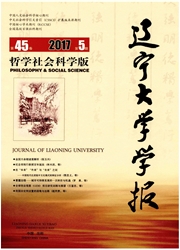

 中文摘要:
中文摘要:
非均衡制度变迁形成了中国农业劳动力"离土不离乡"与"非永久性乡城迁移"的特殊转移路径。城乡二元财政体制导致单位农业产值和每一农业劳动者所获得的财政支持仍然远小于非农业部门,而二元金融体制、土地征用制度及对农民工的就业歧视性制度又导致了农业资源的大量流出:一方面,劳动力转移的特殊路径影响了农业劳动力的非农化转移;另一方面,农业资源又在制度与市场因素的双重作用下不断流入城市非农产业。受城乡资源配置失衡的影响,我国二元经济转型过程中就业结构转换滞后于产值结构转换,从而导致农业与非农业比较劳动生产率仍有较大差距,二元经济强度不仅远高于发达国家,也高于与其发展程度大致相同的发展中国家。
 英文摘要:
英文摘要:
Unbalanced institutional changes lead to the special migrating path of China's rural labors.As a result of the dual fiscal institution,government's fiscal support to agricultural sections is far less than non-agricultural sections.Dual financial institution,land acquisition,and employment discrimination against rural labors result in agricultural resources flooding out.Affected by unbalanced rural and urban resources allocation,employment structure transference lags behind production value structure transference,which brings out the great gap between agricultural and non-agricultural comparative productivity.The degree of dual economy is not only far more severe than developed countries,and other developing countries with roughly the same developing degree.
 同期刊论文项目
同期刊论文项目
 同项目期刊论文
同项目期刊论文
 期刊信息
期刊信息
